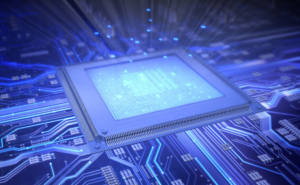Introduction
In the world of technology, terms such as Integrated Circuit (IC) and chipset are often used interchangeably or misunderstood. While both play crucial roles in the functioning of electronic devices, they have distinct characteristics and serve different purposes. This article aims to shed light on the differences between IC and chipset, unraveling their unique functionalities and clarifying their relationship.
Understanding Integrated Circuits (IC)
Definition and Functionality
Integrated Circuits, commonly known as ICs or microchips, are small electronic devices that incorporate numerous electronic components on a single semiconductor material. These components can include transistors, resistors, capacitors, and diodes, among others. The primary purpose of an IC is to perform specific functions, such as amplification, switching, or signal processing, within electronic devices.
Examples and Applications
ICs are the building blocks of modern electronic devices. They can be found in various applications, ranging from everyday consumer electronics to complex industrial systems. Examples of ICs include microprocessors, memory chips, power amplifiers, and sensor interfaces. They provide the necessary circuitry for devices to perform specific tasks efficiently and reliably.
Exploring Chipsets
Definition and Purpose
A chipset refers to a collection of integrated circuits that work together as a unit to provide functionality and control for a specific category of electronic devices, such as computers, smartphones, or motherboards. Chipsets typically consist of multiple ICs, each serving a distinct purpose within the system. They provide the necessary communication and coordination between different components of a device.
Types of Chipsets
There are various types of chipsets designed for specific applications. For instance, in a computer system, you have the motherboard chipset, which includes the Northbridge and Southbridge chips responsible for managing data flow between the processor, memory, peripheral devices, and expansion slots. Similarly, smartphones have chipsets that handle tasks such as communication, multimedia processing, and power management.
The Difference between IC and Chipset
Functionality
The primary difference between ICs and chipsets lies in their functionality. Integrated Circuits are individual electronic devices that perform specific functions within a device. They are responsible for executing tasks such as signal amplification, data processing, or memory storage. On the other hand, a chipset comprises a group of ICs that collectively provide control, coordination, and connectivity between various components of a device.
Scope and Integration
ICs are more focused on specific functions and are designed to perform those tasks efficiently. They are usually smaller in size and can be found in abundance within a single device. Chipsets, on the other hand, encompass a broader scope and are responsible for managing multiple functions and interactions within a device. They integrate multiple ICs to provide seamless communication and control.
Relationship and Interdependence
While ICs and chipsets are distinct entities, they are interdependent and work together to ensure the smooth operation of electronic devices. ICs are the functional units that provide the necessary processing, storage, and amplification capabilities. Chipsets, on the other hand, act as the central hub that coordinates and manages the flow of data and signals between different ICs and components.
Conclusion
In summary, Integrated Circuits (ICs) and chipsets are integral components of electronic devices, but they differ in terms of functionality, scope, and integration. ICs are individual electronic devices that perform specific functions, while chipsets are collections of ICs that provide control, coordination, and connectivity within a device. Understanding the distinction between these two entities helps us grasp the intricate workings of electronic systems and appreciate the collaborative nature of their design and operation.
Get Access Now: https://bit.ly/J_Umma
FAQs
- Can an IC function without a chipset?
- While some ICs can operate independently, many electronic devices require the coordination and control provided by chipsets to function optimally.
- Are all chipsets composed of multiple ICs?
- Yes, chipsets are typically made up of multiple integrated circuits, each serving a specific purpose within the system.
- Can chipsets be upgraded or replaced?
- In some cases, certain chipsets can be upgraded or replaced, depending on the device’s design and compatibility. However, this is not always possible or practical for all devices.
- Are ICs and chipsets limited to specific industries?
- No, ICs and chipsets are used across various industries, including consumer electronics, automotive, aerospace, and telecommunications, among others. Their versatility allows them to be applied in diverse technological applications.
